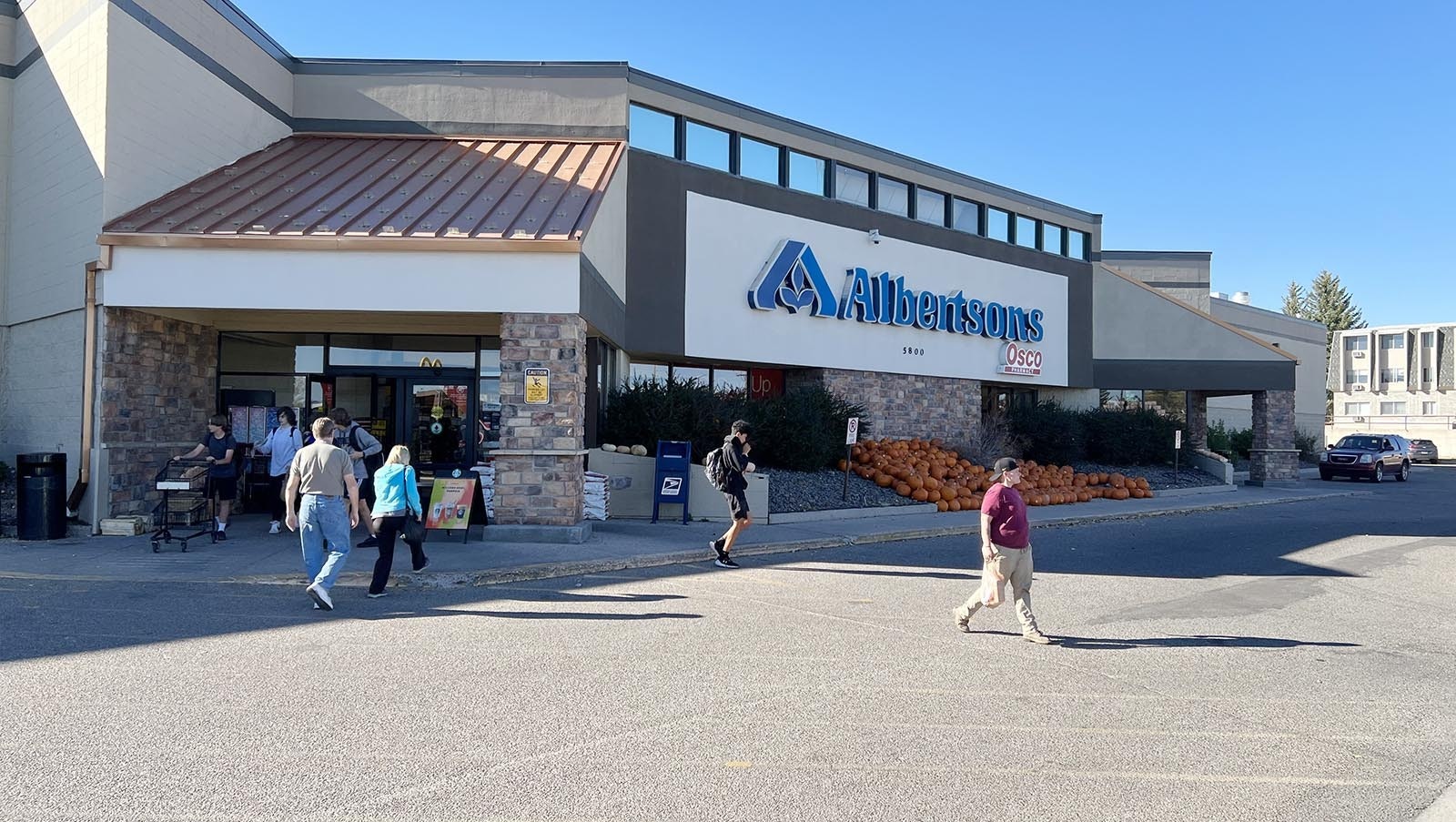By Renée Jean, Business and Tourism Reporter
renee@cowboystatedaily.com
A judge in Washington state has extended a temporary injunction blocking Albertson’s $4 billion payout to shareholders ahead of a proposed mega-merger with Kroger that has been sharply criticized by union leaders in Wyoming.
Local 7 President Kim Cordova, who represents about 750 Kroger and Albertsons workers in Wyoming, has previously told Cowboy State Daily she believes the payout is designed to weaken Albertsons, making it impossible to stop the proposed $25 billion monster merger.
“Kroger’s going to come and say, ‘Look FTC, you’re going to have to approve this because Albertsons just, you know, gave all their money back, and they’re going to file bankruptcy, and so you need to approve this,’” she said. “They’re just making the merger go through. They’re not going to operate both stores within the same parking lot.”
States Sue
Her criticism is similar to that in a case filed by the state of Washington’s attorney general in King County Superior Court, where judge Ken Schubert on Thursday extended the injunction on grounds the state’s case is likely to succeed on the merits. The order gives Washington Attorney General Bob Ferguson more time to prepare his case.
A new hearing date is 3 p.m. Nov. 17.
In his order, Schubert also noted that Albertsons disclosed in an Oct. 18 filing with the Securities and Exchange Commission that it will fund the $4 billion payout with not just cash on hand, but a $1.5 billion loan.
“Once Albertsons distributes the dividend to shareholders, the money will be irrecoverable and plaintiff will be unable to carry out its constitutionally mandated statutory duty to protect commerce and consumers in the state of Washington,” Schubert wrote.
Another State In The Mix
So far three other states also filed a lawsuit to block the dividend payout.
Illinois, California and Washington D.C., filed in federal District Court, outlining a case very similar Washington’s.
Oregon’s Attorney General Ellen F. Rosenbaum, meanwhile, has joined the fray. She filed an amicus brief in the Washington state case, saying the outcome of the matter is crucial to protecting Oregon consumers from monopolies.
“The proposed acquisition of Albertsons has the potential to harm competition and consumers,” she wrote. “And these potential harms are of critical interest to Oregon, which depends on the economic dynamism that competition promotes, and for which the Organ Attorney General is tasked with protecting. The proposed merger of these major retailers presents a substantial matter of public interest.”
Rosenblum’s office also sent a letter to Albertsons notifying them that Oregon would be investigating the transaction in detail.
The letter included a Civil Investigative Demand — essentially a request for any and all internal documents related to the transaction.
Washington, too, has requested more details on the transaction, including board minutes and other internal board communications relating to dividend and its effect on Albertsons.
Impacts For Communities
Cordova has told Cowboy State Daily that consumers have already seen what happens in these big grocery store chain mergers, and it’s not the lower prices and higher wages that the two companies are promising right now in press kits and media releases.
“The map shows you how concentrated and how many stores overlap in the western part of the U.S.,” she said. “I mean, Southern California, (Colorado), Wyoming, New Mexico, Arizona, Texas — Safeway and Albertsons control the market and Kroger.
“In some of our areas throughout both states, they control almost 100% of the grocery market.”
Too Much Spin
She also is skeptical of a proposed spin-off grocery chain to be created as part of the merger to keep markets competitive. Spinco, she suggested, is mere spin to get the deal past federal regulators.
“They’re not going to let that competitor thrive,” Cordova said. “They sell them a lemon, basically.”
That’s what happened when Albertsons took over Safeway in 2015, she suggested. As part of that merger, Albertsons sold off 168 locations, many of them to Haggen Foods & Pharmacy.
Those stores were all bankrupt within a year, widening food deserts in the West and leading to hundreds of layoffs.
“We’re already suffering the high cost of inflation,” she said. “And now you’re going to have just two giant behemoths in control of our whole country’s food supply chain.”
Albertsons Responds
“Albertsons Cos. Is a thriving business, which has delivered over $75 billion in revenues in the rolling four quarters ended Sept. 10, 2022, following strong performance of $71.9 billion in revenues in fiscal 2021,” Albertsons has told Cowboy State Daily for a previous story on the proposed merger. “Albertsons Cos. Is well-capitalized, with limited debt and significant free cash flow, and is in a strong position financially. The size of the dividend reflects the Company’s strength, rather than the illogical and damaging accusation that it is an attempt to weaken the company.”
After it pays out the special dividend, the company will still have $3 billion in liquidity, including $500 million cash on hand and $2.5 billion in its lending facility.
“Albertsons Cos. Intends to argue vigorously based on the factual record, that there is simply no basis to continue restraining the payment of the Special Dividend,” the statement concluded.





